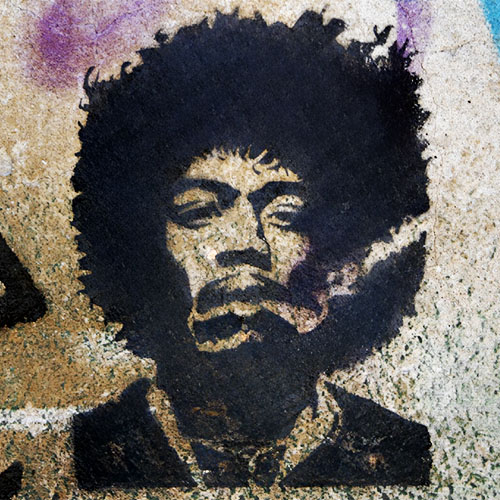Pity the rookie combatants in today’s culture wars. It can’t be easy to join a battle that’s been waged since before they were born and to think it’s new. I’m talking about free-speech warriors in neatly pressed Fred Perrys and un-scuffed boots, collecting their “blocked by” Twitter designations like medals, and howling their God-given right to make rape “jokes.”
All the young dudes hoping history will judge the video games they play to be as cool as rock ’n’ roll—a cohort of guys who, when they’re no longer young, seconds from sliding toward the great apolitical beyond, will—like dying Confederate soldiers picturing their mothers’ faces — envision Eminem himself laying a cooling hand upon their wrinkled foreheads.
As a veteran of the music-culture wars, I remember Tipper Gore’s denunciation of both the Dead Kennedys and Prince back in the eighties. It was alarming. Moreover, I’ve been engaging in lengthy arguments in defense of some sketchy black metal since the 1990s. I like to think, then, that my take on these rookies—the boys who are proud—has more behind it than the jerk of a knee.
If you’ve never heard of Hollywood’s Hays Code (puritanical censorship of movie sexuality), or Fredric Wertham’s 1954 book Seduction of the Innocent (comic books create juvenile delinquents, it argued), or the hysteria about jazz (“It’s the music of drug-using Negroes!”), followed by hysteria about rock ’n’ roll, disco, porn, punk, Dungeons & Dragons, heavy metal, hip-hop, and more, then yes, it must seem like we’re living in very combative times indeed. And we are! But not more so than any other. It only feels that way if you’re a person who really, really wants to wear that Burzum shirt onstage, or thinks that any episode past the second one of the new Roseanne was funny.
Maybe we’re at war, maybe we’re not. Far be it from me to diminish anyone’s heroic narrative. But this idea that cultural clashing has our country doomed? C’mon, it took almost 200 years for Rome to fall. Unless America peaked in 1812 (and unless you think Tchaikovsky’s famous overture was about the British burning the White House, when it was about Napoleon in Russia), we should be okay at least until the end of Radiohead’s album cycle.
I have perspective—and not because I’m a nerd. While I wear glasses and have weird breath, I’m not really smart enough to be a proper nerd. I’m using the broader, original definition of the word, the one that means being good at science and math, as opposed to being a guy who worships mass-media franchises like Star Wars so much he’ll send death threats about casting. But I’m nerdy enough to have a passing interest in the last hundred years of popular culture and, baby, let me tell you, it was turbulent.
Comedian Lenny Bruce and crooner Frank Sinatra (pre-Republican version) both got fucked with. There were laws against dancing that are still on the books. Weird as it may seem in a world where all moms have terrible tattoos, I remember a time when a mohawk and ripped shirt could get you beaten to within an inch of your life. What made it especially wild was that, for the most part, the culture wars were fought by artists, African-Americans, and gays on one side, and organized religion and the truncheon-wielding state on the other.
It wasn’t until the disco backlash—where rockers and long-hairs across the country, forgetting that Little Richard himself once sang about anal sex, waged a record-burning war on the infernal blackness and gayness of this glittery dance music—that sectors of the general population took the initiative. But by 1985, Tipper Gore and the Parents Music Resource Center had restored the gnashing of teeth and pulling of hair about bumping-uglies content in art to its rightful, bureaucratic place: Washington, D.C.
In the 1990s, with the advent of the term “political correctness,” we witnessed harbingers of today’s culture wars. Fugazi and their ilk bummed out thousands of punks by demanding they do less shoving of strangers at their shows. That the prerogative to take a running jump from a stage prior to crashing on someone’s head would be seen as a cultural imperative might arguably be considered fucking insane, but then again, “go my own way” non-neighborliness, “don’t tread on me” politics, and, for that matter, states’ rights, are as much a part of the American identity as the Freedom March.
That strain of solipsistic individualism won the frontier West, and pointing out the human cost to this expansion is pure sissydom, they argue, so you can understand why so many young men hated Bikini Kill. It’s like those bitches hated fun.
Somehow, despite the reign of PC terror, Nu Metal and VICE still happened, so maybe, just maybe, the dour cultural killjoys weren’t as powerful as some put-upon dudes thought. Or maybe the “culture wars” are not, in fact, wars; they’re just culture. Nobody wins or loses and the sides overlap. It’s just the push and pull and cyclical noise we all make together.
In fairness, I should acknowledge that friends and peers of a more—cough—libertarian bent make an (occasionally) potent argument that, in the year of our Lord 2018, leftists have taken over the government’s role as art- and freedom-haters. They argue that not everything has to be political, and that uptight, indoctrinated squares are constantly rallying their online mobs to crush any art or opinions that stray from (cultural Marxist) orthodoxy.
I don’t disagree that perpetual outrage can be a hell of a drug, and of course some people really are just puritans—in the thirties, they’d have been Stalinists—but I just can’t muster the rhetorical reach to equate hard-rock band Black Pussy losing shows in Portland because of their name with, say, President George W. Bush denouncing Ice-T’s band Body Count for “Cop Killer.” The difference in power dynamics is just too vast.
It maybe doesn’t help that some of the most strident voices railing against social-justice warriors are people like Brett Kavanaugh’s conservative crony Mark Judge, a sometime music writer, who, while denouncing a fellow music writer’s argument against cultural appropriation, bizarrely referenced Sonic Youth’s novelty side-project, Ciccone Youth.
As with most situations in our time of degraded discourse, it’s the dummies and dullards who get the most clicks, so it’s easy enough to find examples of pure insanity on both sides (yes, I can think of examples of said dummies on my side of the fracas, but I’m not going to name them because they’re hella embarrassing).
But idiots on both sides is not the same as “very fine people on both sides.” While I like a bit of nuance now and again, if your beef is in exact accordance with that of the state—in other words, you view your opponents as mouthy, marginalized miscreants shitting in capitalism’s punchbowl—you’re perhaps not the free-speech underdog you imagine yourself to be.
It’s been a rough few months for those staring back at me from across the field of cultural combat. Two bands not exactly noted for their liberal uptightness, Texas thrashers Power Trip and New York hatecore pioneers Sheer Terror, have both publicly stated that Proud Boys are not welcome at their shows. I don’t imagine it’s fun when musicians you’ve delusionally decided share your worldview want nothing to do with your eternal crybabyness. Culture war is hell when metalheads and skinheads both agree that you’re too evil to live and too corny to kill.
At least the alt-right can take some comfort in the fact that the army, police, and every branch of government is in their corner. It must be nice to know that, in this grand clash of civilizations, this Custer’s Last Stand against dark-skinned Star Wars cast additions—not to mention rappers who decry your use of the N-word even though they use it, and comic book-ruining feminazi hordes—your President Dad has a shit-ton of guns and will wait outside the show in case you get picked on in the mosh pit.
A comfort, for sure, but one that hardly makes for a sexy T-shirt.
We tried to point out the irony in being outraged about people being outraged, but editors as a rule do not readily appreciate nuance. … Apparently readers find it boring. Who knew? … Gosh, without editors we’d apparently all be really stupid. Thank goodness for them, then.]



















